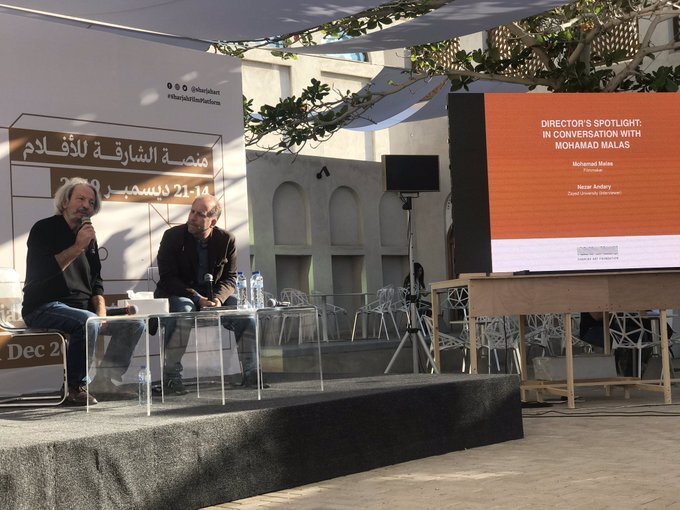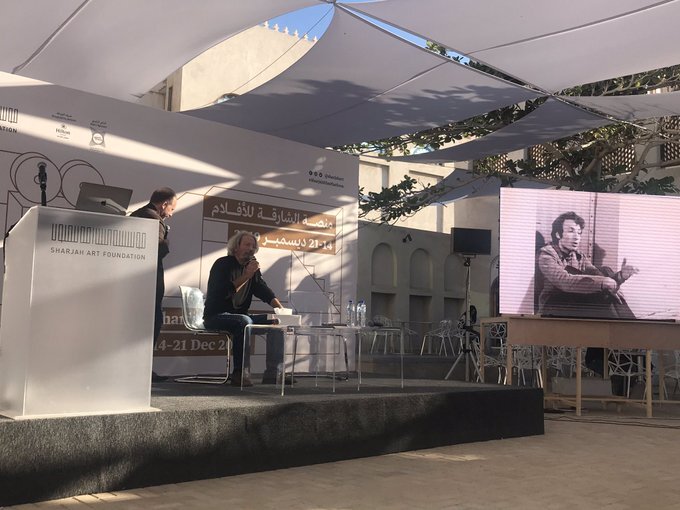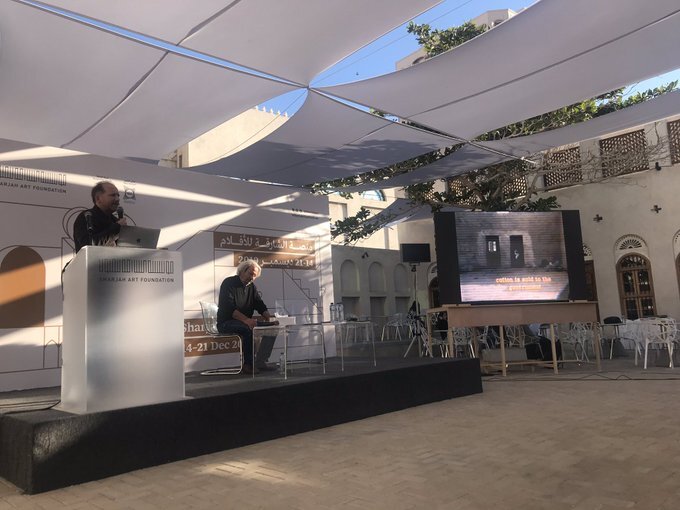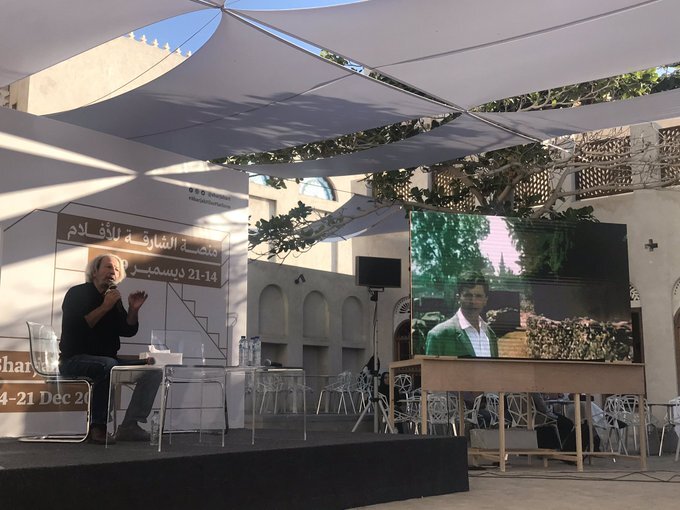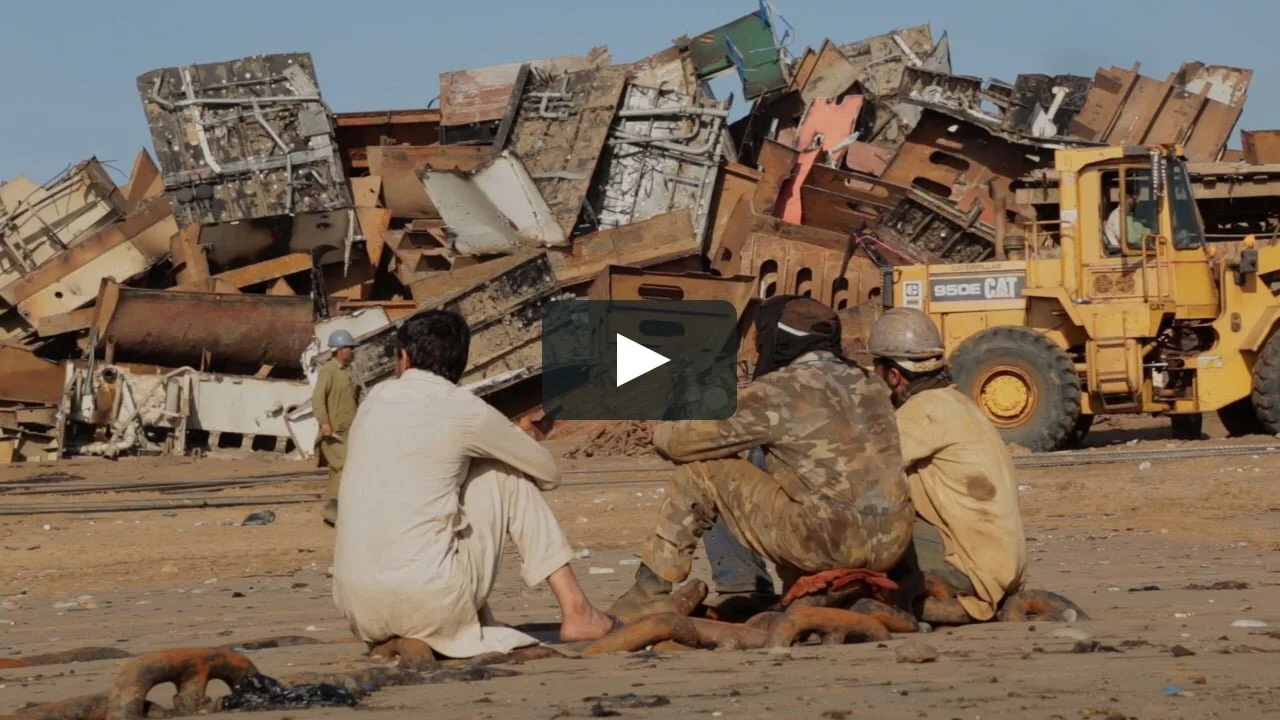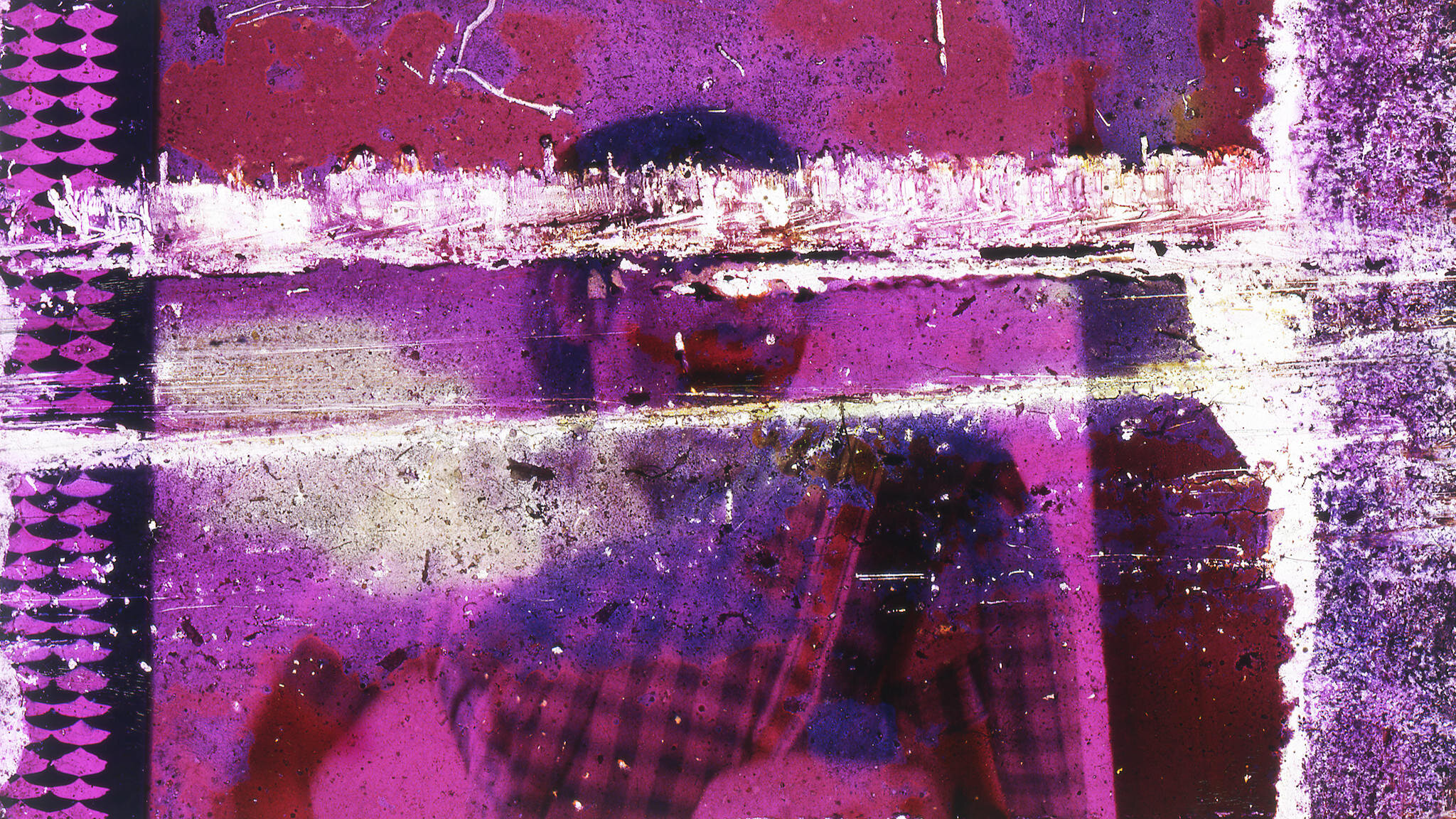Notes from the 2nd Edition of Sharjah Film Platform
The second edition of Sharjah Film Platform ran between December 14-21. The first edition took place in January this year, but looks like moving forward, this event will take place every December.
The second edition had a reduced number of films (approximately 50 films) and screening locations (two), and the schedule was back to back instead of multiple screenings at the same time as in January. I think a smaller scale version of the event is a good move, to be able to get more people attend screenings at a time instead of a scattered audience in multiple venues.
In general, not large numbers attend the screenings (which includes short and long features, documentaries and experimental films), perhaps because there is still not enough awareness of the event outside the art community.
This edition also included talks, workshops, awards and a new “Pitching Forum”, an invitation only event for filmmakers to meet industry professionals, to present new projects and to receive feedback and find potential collaborators for future productions.
I only had time to attend one evening of film screenings in Al Hamra Cinema, and a couple of talks.
My highlights:
All Inclusive by Corina Schwingruber which has been on my watchlist for a while. It’s an observation on mass consumerism and entertainment on the high seas and I wish it was longer than 10 minutes.
All That Perishes at the Edge of the Land by Hira Nabi is described as a docu-fictional about “a ship berthed at Gadani and the shipbreakers coming from all over Pakistan to break it discover that they might have more in common than otherwise imagined, when they enter into a conversation”.
“No one is here on their own free will” is a line from the film which in essence is about labour, lost dreams, longing and desires.
That Cloud Never Left by Yashaswini Raghunandan, features a small village in India where its inhabitants produce by hand colourful toys from 35mm film reels.
The monotonous labour of making these toys is captured along with fragments of daily life in the village. The result is hypnotic and poetic.
On December 20 I ran a film discussion workshop where I had to select one of the films showing at Sharjah Film Platform to talk about. I selected Dunya’s Day by Raed Alsemari.
The 14 minute film premiered at Sundance in January this year where it won a Jury Award and has been shown at several film festivals since.
The film synopsis is as follows:
Abandoned by her domestic help, Dunya fights to throw the perfect graduation soirée.
I chose it to discuss class, peer pressure, privilege, entitlement, materialism and the architecture of the domestic space in the film.
There was a talk titled “Director’s Spotlight: In Conversation with Mohammed Malas”. The session was only 30 mins long, because right after it was a scheduled reception for an exhibition opening in the same building.
Director Mohamad Malas is a major auteur of Syrian cinema with five decades of internationally acclaimed creative work. His filmmaking weaves between personal and collective history. Among his most important narrative feature films are Dreams of the City (1983) and The Night (1992). He has also produced many documentaries, including The Dream (1987), which is about the nocturnal dreams of displaced Palestinians, and published numerous books and novels.
In this session, Malas will discuss his challenges and successes as an artist in the Arab world, his camaraderie with other Arab filmmakers and his unique cinematic vision, which he will illustrate by analysing a few scenes from his films. He will speak in conversation with Nezar Andary, whose documentary Unlocking Doors of Cinema: Muhammad Malas (2019) premiered this year at the Cairo International Film Festival.
It was quite unfortunate to see an an acclaimed filmmaker like Malas to be only allocated 30 minutes to talk about his career to a small number of attendees (there were more people attending the exhibition reception right after it).
I wish Sharjah Art Foundation scheduled 60-90 minutes for this talk, in an auditorium where we can properly watch clips from his films, and with a better turn out. There’s a large Syrian community in Sharjah and I wondered if they knew about the talk, surely they would fill a room to hear him speak. I also wish Sharjah Film Platform included films by Malas, as a director in focus. It would have been a great opportunity to see some of his films on the big screen.
We don’t often get filmmakers of his calibre in town, and when we do, a bigger deal should be made of it.
